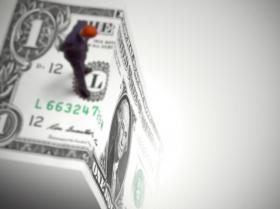 Despite the naysayers, the doubting public and the latest polls, there will be a deal of some stripe between the Grand Old Radical Party and President Barack Obama's Democratic Party. The deal will be struck Monday, Dec. 31, going right down to the government's self-imposed deadline.
Despite the naysayers, the doubting public and the latest polls, there will be a deal of some stripe between the Grand Old Radical Party and President Barack Obama's Democratic Party. The deal will be struck Monday, Dec. 31, going right down to the government's self-imposed deadline.The deal-maker will be the corporate tax rate, currently at 35 percent. Both parties agree that rate should be lowered. That singular agreement will be enough for the government to avoid sailing over the fiscal cliff.
Obama cut short his Hawaiian vacation to return to the White House Thursday, Dec. 27.
The White House wants to put a corporate tax overhaul, along with changes to the individual income tax system, as part of any deal to avoid the fiscal cliff.
Obama has proposed lowering the federal rate to 25% for manufacturing companies and to 28% for other firms. Rep. Dave Camp (R-Mich.), chairman of the House Ways and Means Committee, has been pushing a plan to lower the rate to 25% for all corporations.
In both cases, the rate cuts would be accompanied by the elimination of some of the numerous tax breaks that allow many companies to pay a much lower effective tax rate. Some companies avoid paying any corporate taxes at all.
Analysts who have followed the fiscal cliff controversy from the beginning say the 35% corporate tax rate in the U.S. is the highest among the world's developed economies. Cutting it would improve global competitiveness for many U.S. businesses. Several countries already have lowered taxes to lure new businesses and keep existing companies from leaving.
But the business community in the U.S. itself is divided. Many small companies file taxes as individuals. They're opposed to any deal that would raise their rates while giving corporations a rate reduction.
However, according to White House tax specialists, the rate in the tax code isn't what many companies pay because of a host of deductions and tax credits. For example, in 2011, the effective corporate tax rate in the U.S. was 29.2%, roughly in line with the 31.9% average of the six other largest developed economies.
Obama also wants to set a new minimum tax rate on foreign corporate profits, even if they are never brought back to the U.S.
The U.S. is one of the few countries that taxes foreign earnings when they are brought back to the country. To avoid that tax, many companies deposit their earnings in offshore banks or invest the earnings back into the foreign countries.
That's one deal-breaker on which the President either has to back-pedal or compromise. He won't like it, but he'll do it.

 By
By 